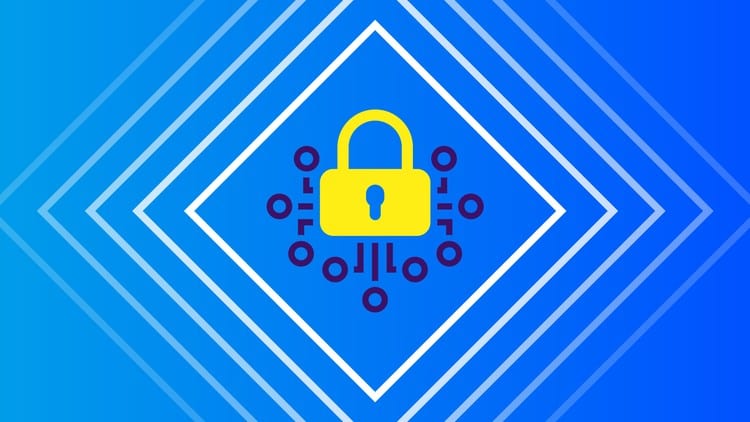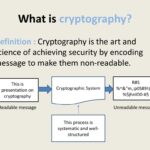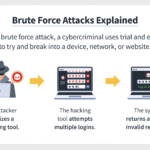If you find yourself pondering the enigmas of secrecy and the art of protecting sensitive information, you may have stumbled upon the captivating world of cryptography. In an era dominated by digital communication, mastering cryptography can provide you with not only valuable skills but also a profound understanding of privacy and security in the digital realm. But what does it truly take to become proficient in this intricate field? Here, we embark on an exploration of the requisite knowledge, skills, and mindset needed to excel in cryptography.
1. Understanding the Foundations of Cryptography
Before delving into the complexities of cryptographic algorithms and protocols, it is imperative to familiarize yourself with the foundational principles. Cryptography is the art and science of encoding messages to conceal their content from unauthorized access. At its core, it encompasses various techniques designed to ensure confidentiality, integrity, authentication, and non-repudiation.
Begin by grasping the basic concepts such as symmetric and asymmetric encryption. Symmetric encryption uses a single key for both encryption and decryption, while asymmetric encryption employs a pair of keys—a public key for encryption and a private key for decryption. Comprehending these fundamentals lays the groundwork upon which advanced cryptography is built.
2. Mastering Mathematical Concepts
Cryptography is deeply rooted in mathematics. A solid understanding of number theory, algebra, and probability is essential. Delve into topics such as prime numbers, modular arithmetic, and mathematical functions such as hash functions. Mastery of these concepts will allow you to appreciate how cryptographic algorithms function and the rationale behind their design.
For instance, the security of widely-used encryption schemes, such as RSA, hinges on the mathematical difficulty of factoring large prime numbers. Recognizing this relationship between mathematical principles and cryptographic security is crucial for any aspiring cryptographer.
3. Familiarity with Cryptographic Algorithms
The landscape of cryptography is adorned with numerous algorithms, each designed for specific applications. From block ciphers like AES and DES to public-key algorithms like RSA and ECC, understanding the strengths and vulnerabilities of these algorithms is paramount. Explore the principles behind widely-utilized hashing algorithms, including SHA-256.
It is equally important to study the contexts in which these algorithms are applied. For example, symmetric encryption is often favored for encrypting large datasets due to its speed, while asymmetric encryption is commonly employed in secure key exchanges. By internalizing this knowledge, you not only enhance your technical acumen but also cultivate a strategic mindset.
4. Practical Application and Implementation
Theoretical knowledge must be complemented with practical skills. Engage in hands-on exercises to implement cryptographic algorithms using programming languages such as Java, Python, or C++. Numerous online resources offer courses that guide beginners through the process of coding cryptographic functions.
Experiment with different libraries and frameworks available for encryption to understand their implementations. Additionally, practice encrypting and decrypting messages, ensuring you are capable of troubleshooting common pitfalls. This experiential learning cultivates a deeper appreciation of the intricacies that lie beneath seemingly straightforward encryption protocols.
5. Exploring Cryptographic Protocols
Beyond encryption algorithms, a comprehensive understanding of cryptographic protocols is vital. Protocols govern how cryptographic algorithms work in practice, facilitating secure communication over networks. Investigate protocols such as SSL/TLS for secure web communication, PGP for secure emails, and blockchain technology for decentralized transactions.
Each protocol has its nuances and is designed to address specific security concerns. An adept cryptographer must comprehend these intricacies to design and evaluate secure systems. Consider the implications of protocol design on security and the potential vulnerabilities that arise from improper implementation.
6. Staying Abreast of Current Trends
The field of cryptography is perpetually evolving, propelled by advancements in technology and emerging threats. To genuinely master cryptography, one must adopt a mindset of continuous learning. Stay informed about the latest developments, such as quantum cryptography, which promises to revolutionize the landscape with its potential to render traditional encryption obsolete.
Follow cryptographic communities, attend conferences, and participate in forums where experts discuss the latest breakthroughs and challenges. Engaging with fellow enthusiasts not only broadens your perspective but also inspires innovative thinking, ensuring you remain at the forefront of cryptographic mastery.
7. Ethical Considerations and Responsible Revelations
As a cryptographer, your knowledge bestows not only capabilities but responsibilities. Ethical considerations must permeate your work, particularly when dealing with sensitive information. Reflect upon the implications of cryptographic technologies on privacy and surveillance. Will your work protect the innocent or serve as a tool for malevolent purposes?
Commit to ethical standards and advocate for responsible encryption practices. As the guardians of information, cryptographers must ensure their skill set uplifts modern society, fostering trust and security in an increasingly interconnected world.
Conclusion
Mastering cryptography is not merely an academic endeavor; it is a journey into the depths of secrecy, integrity, and protection in our digital age. Through understanding foundational concepts, mathematical principles, implementation techniques, and the dynamic nature of the field, you can cultivate the expertise required to navigate these intricate waters. Embrace the challenge, nurture your curiosity, and become an architect of secure communications in a world rife with uncertainty.








Leave a Comment